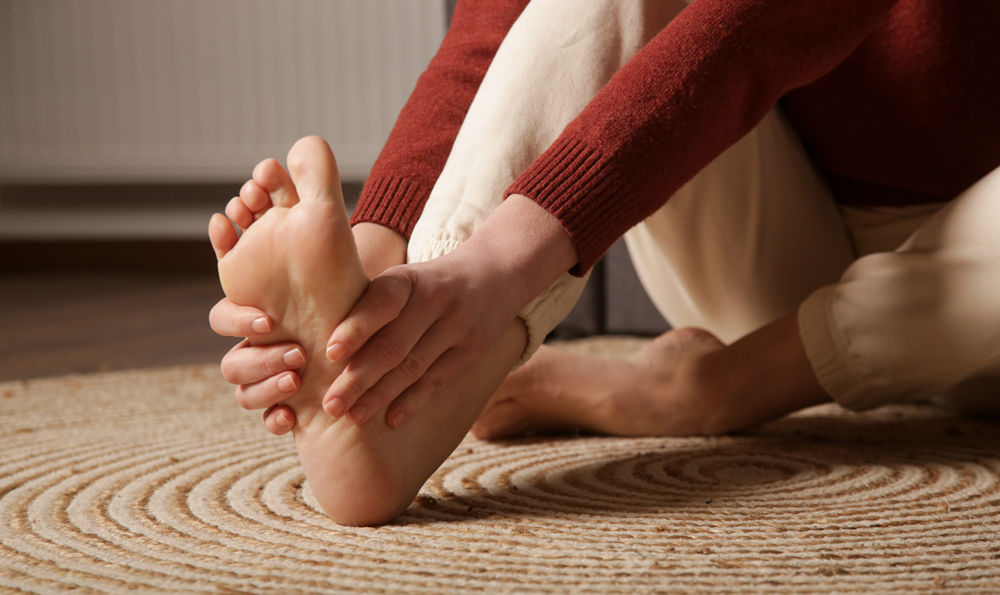Foot cramps can feel like a bolt of lightning—sudden, sharp, and completely immobilizing. Though rarely dangerous, these muscle spasms can be painful and disruptive. So, what exactly causes foot cramps, and what can you do about them?
Christopher Wu, MD, a sports medicine physician at Atlantic Health, says, “A foot cramp is a sudden involuntary tightening or spasm of a muscle in the foot. It’s often unexpected and in time will resolve on its own. And although it isn’t typically harmful, it can be intense and cause you to freeze in place until it passes.”
Common causes of foot cramps
1. Dehydration
This is the most common and preventable trigger. When your body is low on fluids, muscle cells can’t function properly, making them more prone to spasms.
2. Electrolyte Imbalances
Low levels of potassium, calcium, sodium, or magnesium can disrupt the electrical signals in muscles and cause dehydration and cramping.
3. Muscle Overuse or Fatigue
Increased physical activity and sweating—particularly if your body and muscles aren’t used to it—can cause fatigue and lead to cramping.
4. Prolonged Sitting or Standing
Sitting or standing for long periods can cause tightness or reduced flexibility, and this can increase your cramping risk.
“Cramping can also be related to larger health issues such as poor circulation, nerve compression, or an underlying metabolic issue such as diabetes or a thyroid disorder” says Dr. Wu. “Muscle enzymes, mitochondrial disorders, and medications such as statins or diuretics can also increase your cramping risk.”
What to do when a cramp hits
- Gently stretch the affected muscle. For example, pull your toes toward the sky to ease foot tightness and reduce the intensity and duration of the cramp.
- Apply gentle pressure to the cramped muscle and hold the area in a neutral position until the pain begins to subside.
- Avoid icing the cramp because cold therapy isn't typically helpful for cramps. Focus on stretching and loosening the muscle, not numbing it.
“Most foot cramps are benign,” says Dr. Wu. “However, if you're experiencing frequent, unexplained cramps—along with muscle weakness, numbness, or tingling—consult a health care provider. It could be a sign of nerve compression or an underlying medical condition.”
How to prevent foot cramps
Prevention is key—especially if you're prone to recurring cramps. To keep cramps at bay, Dr. Wu recommends staying hydrated along with a few other tips.
“Water is great, but if you're sweating heavily, consider drinks or powders with electrolytes to replenish sodium, potassium, and magnesium,” he says. “Wear comfortable and supportive footwear. If you sit a lot, get up and move around periodically. And a proper warmup before intense exercises will help ward off fatigue-induced cramping.”












